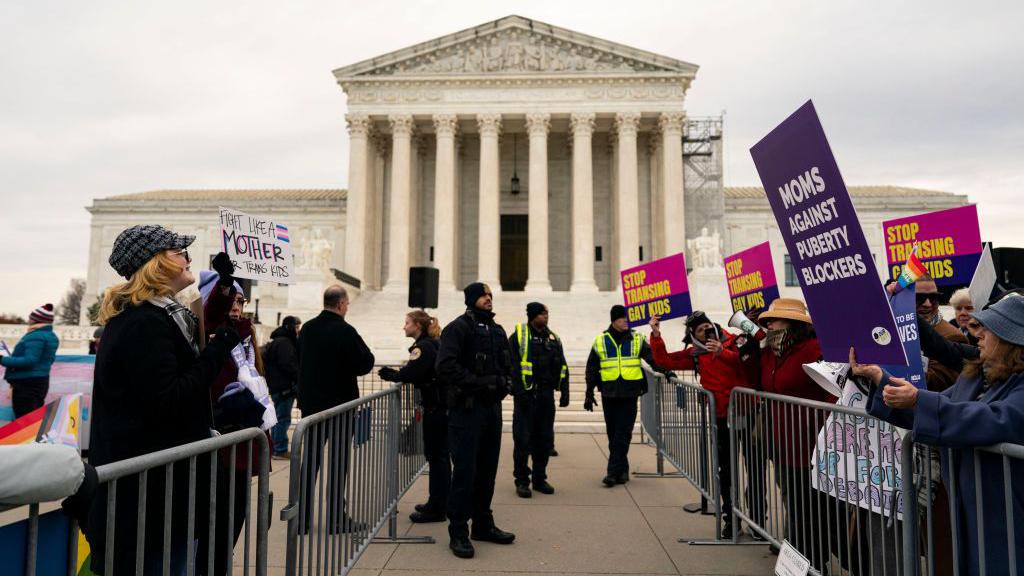US Supreme Court Says Tennessee Can Block
Transgender Care for Kids

The US Supreme Court has made an important decision. It said that a law in Tennessee
that stops transgender kids under 18 from getting certain medical care can stay in effect
for now.
This means that children under 18 in Tennessee cannot get puberty blockers, hormone
therapy, or gender change surgeries, even if their parents and doctors agree.
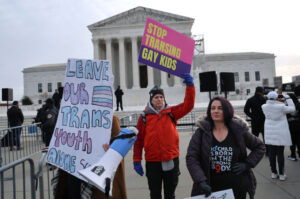
What Does the Tennessee Law Say?
This law says that:
-
Doctors are not allowed to give gender-related treatments to anyone under 18.
-
These treatments include puberty blockers, hormone therapy, and in some cases, surgeries.
Some families went to court and said this law was unfair and against their rights. A lower
court had stopped part of the law, but now the Supreme Court has allowed it to go back into
effect.
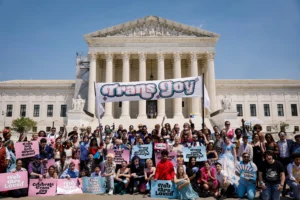
What Did the Supreme Court Say?
The Supreme Court didn’t give a final decision. But it said that while the case is still being
discussed in lower courts, the law can continue to be active. So, for now, the ban stays.
What Are People Saying?
People who support the law say:
-
Kids are too young to make such big, life-changing decisions.
-
These treatments may have long-term effects.
-
The state should protect children.
People who are against the law say:
-
Transgender kids may suffer mentally and emotionally without this care.
-
Doctors and families should decide what’s best — not the government.
-
It’s a human rights issue — everyone should be allowed to live as who they are.
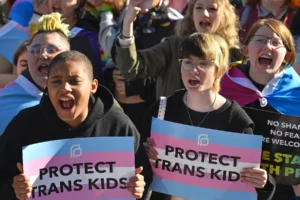
What Does This Mean for the US?
Tennessee isn’t the only one. More than 20 other states have passed similar laws. Now that
the Supreme Court has allowed Tennessee’s law to stay, those other states might also start fully
enforcing their bans.
This could also affect future court decisions about transgender rights in America.
What Happens Next?
This decision is temporary. The case is still going on in lower courts. The Supreme Court
may look at it again and give a final ruling later.
But right now, transgender minors in Tennessee cannot get gender-affirming
medical care.
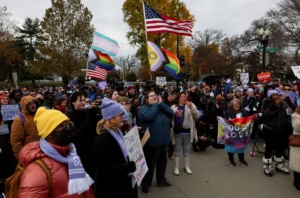
Final Thoughts
This isn’t just about laws — it’s about real children and families. It’s about kids who want to
feel comfortable in their own skin. It’s about parents trying to do what’s best for their child. And
it’s about a country deciding how to treat its most vulnerable people.
We will have to wait and see where this important issue goes next.

